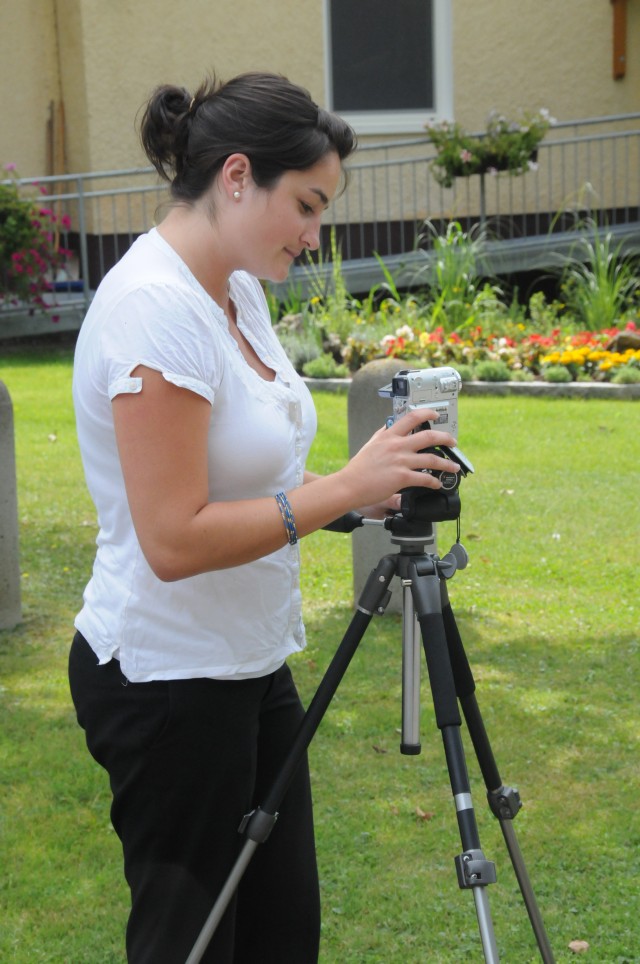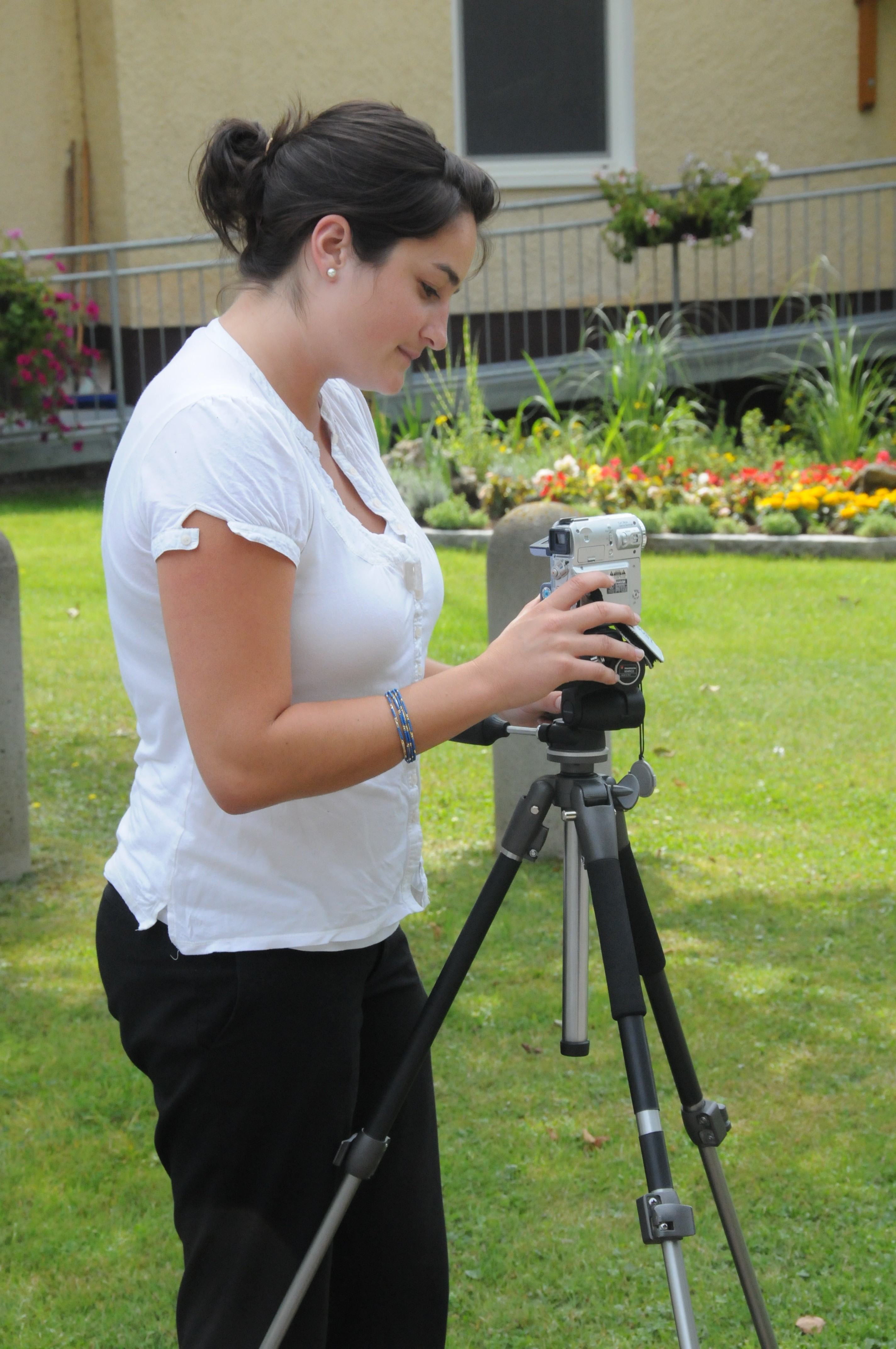
HOHENFELS, Germany -- By the time her senior year at the College of Charleston was ending in 2009, Annie Chambers was losing hope of finding a full-time job.
She was flying to New York and Washington, D.C., on the weekends for interviews, but she said the less than promising job market in the United States had prompted her to research other options.
Enter the Workforce Recruitment Program.
A Department of Labor centrally-funded program, the WRP connects federal sector employers with post-secondary students and recent graduates with disabilities.
After an interview with a program recruiter, Chambers' information was entered into a database accessible by, among many others, Equal Employment Offices throughout the Department of the Army.
Troy Darr, public affairs officer for U.S. Army Garrison Hohenfels, contacted Alma Molina, Hohenfels EEO program manager, about hiring someone through the WRP to complete special projects his staff had not had time to tackle.
Molina searched the database for candidates who might match Darr's needs. Chambers was one of them.
Three months later, both Darr and Chambers are grateful they chose to participate in the program.
"I am absolutely glad I did it. It has been a great out of college first experience. I couldn't have asked for anything better." said Chambers. "Especially at Hohenfels, it finally feels as if I am finally in the real world. I've had four unpaid internships so I know what it's like to be babied and I didn't want that."
Though she had to pay for her own ticket to Germany, as a WRP employee Chambers was paid a salary commensurate with her education and experience.
Like the eight other WRP interns working for U.S. Army Europe and Installation Management Command-Europe this summer, Chambers also needed to find housing (she received a housing allowance) as well as arrange for transportation, all of which she said Molina went "above and beyond" to assist with.
The experience, while a bit of a culture shock, has been a valuable one, Chambers said.
After a summer renting a room from a German family with three children about her age, she said: "It has been amazing and I wouldn't have it any other way. I've gotten to travel with them; I made friends; I ate German food. I even had a conversation with someone in German the other day."
While spending the summer learning about the German culture, Chambers also had to learn about the Army culture.
"After doing internships in corporate America, I know that world. Working for the military every day I asked a lot of questions," she said, adding that learning to operate in a new environment has honed her adaptive skills.
Chamber's positive experience with the WRP has been a positive one for Darr also.
"It has been great. Annie was able to work with minimum supervision. I gave her a project to complete and she ran with it," said Darr, who explained that Chambers has been working on projects he has wanted to complete for some time but has not had the man power to begin.
According to Kym McRae-Haeffner, Hohenfels EEO program specialist, that is one of the highlights for supervisors.
"It's advantageous for both the student and the employer because you're able to fill a position that doesn't come out of your budget. You get someone from a pre-screened DOL referral pool that can work on special projects or on-going projects that need help," she said, adding that not only does it not cost supervisors anything, it also takes very little time on their part.
"If you look at the time I put into it versus what we got out of it, the return is huge," said Darr, who said to hire Chambers he needed only to provide Molina with a job description, then sort through the potential candidates she found for him from the database.
Though it requires little time and no money on the part of the supervisor, Wanda Watson-Mays, WRP coordinator for USAREUR, said she thinks some managers are still wary of hiring a student or recent graduate with a disability.
"Disability doesn't mean inability," said Watson-Mays. "We're trying to shift some paradigms here."
Chambers, who was diagnosed with attention deficit hyperactivity disorder in high school, said for her, it is a matter of learning to work around her disability.
"I will get it done and I will get it done well, it's just a little harder to stay on task sometimes," said Chambers. "I don't think people here even know I have a disability. It's nice that they don't judge you for anything."
To ease any misgivings employers might have about hiring someone with a disability, Watson-Mays stressed two things: first, that each applicant in the WRP database is extremely qualified, and two, that "just like any other federal employee, if they don't work out you can let them go."
"Some people in the database I saw have two PhDs, or two PhDs and a law degree but have trouble finding a job. This program is just one vehicle to get qualified people with disabilities gainfully employed," said Watson-Mays.
Supervisors interested in the WRP should contact their EEO for more information.

Social Sharing